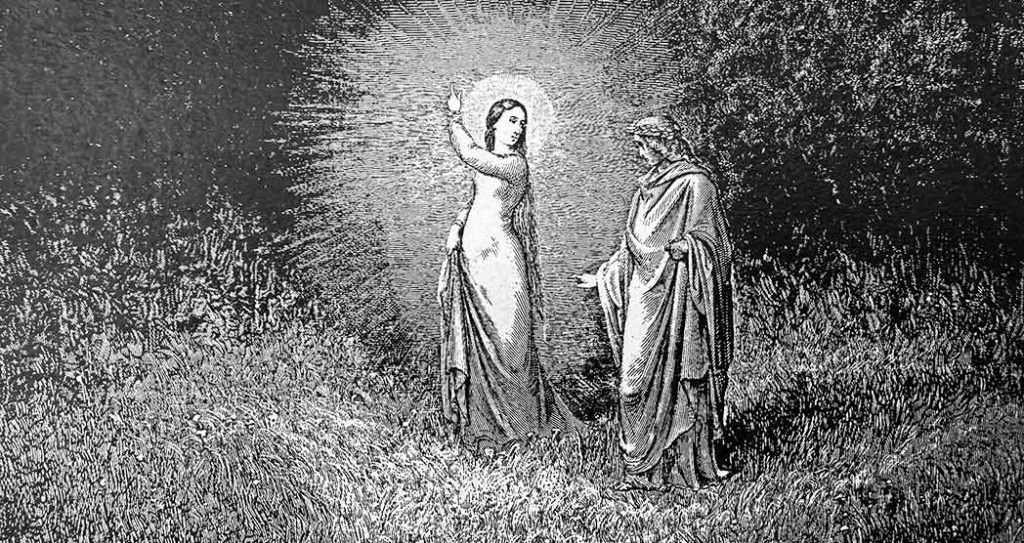
Dante & Beatrice: Il Poema Che Ha Cambiato il Mondo
Dante & Beatrice: The Poem That Changed the World
Nel mezzo del cammin di nostra vita
mi ritrovai per una selva oscura,
ché la diritta via era smarrita.
Ahi quanto a dir qual era è cosa dura
esta selva selvaggia e aspra e forte
che nel pensier rinova la paura!
Avete capito? Sto leggendo il famoso poema di Dante,
La Divina Commedia. Ecco la traduzione in inglese:
Midway upon the journey of our life,
I found myself within a forest dark,
for the straightforward pathway had been lost.
Ah me! How hard a thing it is to say
what was this forest savage, rough, and stern,
which in the very thought renews the fear!
Ciao a tutti! Sono Melissa, la studentessa matta! Benvenuti sul mio canale! Siete pronti per fare una passeggiata nella storia con me… e con Dante e Beatrice? Ecco un nuovo Matta video. Restate sintonizati!
Hi everyone! I’m Melissa, the Crazy Student! Welcome to my channel! Are you ready to take a stroll through history with me… and Dante and Beatrice? Here’s a new Matta Video. Stay tuned!
L’allegoria medievale del viaggio dell’anima
A medieval allegory of the soul’s journey
Hai mai letto questo poema? È un’allegoria medievale del viaggio dell’anima verso Dio. Il poema è diviso in tre parti: Inferno, Purgatorio e Paradiso.
Have you ever read this poem? It is a medieval allegory of the soul’s journey to God. The poem is divided into three parts: Inferno, Purgatorio, and Paradiso.
Il poema comincia la notte prima del Venerdì Santo dell’anno 1300, “nel mezzo del cammin di nostra vita”. Dante ha trentacinque anni, si è smarrito in una selva oscura ed è assalito da tre fiere: un leone, un leopardo e una lupa. Non riesce a sfuggire alle bestie né a trovare la “diritta via”, che può essere tradotta anche come “la via giusta” verso la salvezza.
The poem begins on the night before Good Friday in the year 1300, “halfway along our life’s path.” Dante is thirty-five years old, lost in a dark wood, and assailed by three beasts: a lion, a leopard, and a she-wolf. He cannot escape them or find the “straightway,” also translatable as the “right way” to salvation.
Consapevole che si sta perdendo e precipitando in un “basso loco” dove il sole tace, Dante viene finalmente salvato da Virgilio. Insieme iniziano il loro viaggio nell’Inferno. Ogni peccato viene punito con il contrappasso, una forma di giustizia poetica simbolica; per esempio, gli indovini camminano con la testa girata all’indietro, incapaci di vedere avanti, perché nella vita avevano cercato di prevedere il futuro.
Aware that he is ruining himself and falling into a “low place” where the sun is silent, Dante is finally rescued by Virgil. Together, they begin their journey into the Inferno. Each sin’s punishment is a contrappasso, a symbolic form of poetic justice; for instance, fortune-tellers walk with their heads twisted backward, unable to see ahead, because that was what they tried to do in life.
Alla fine, Dante viene guidato fuori dall’Inferno e affidato a Beatrice, che lo accompagna nel Paradiso.
Eventually, Dante is guided out of Hell and placed in the care of Beatrice, who leads him into Paradise.
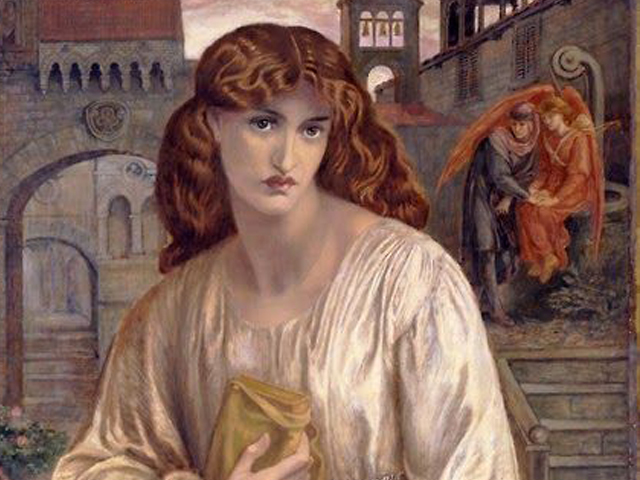
Beatrice: L’ispirazione eterna di Dante
Beatrice: Dante’s eternal inspiration
Beatrice era una donna fiorentina realmente esistita di cui Dante si innamorò perdutamente. La loro storia è molto romantica. Secondo la leggenda, si incontrarono per la prima volta quando Dante aveva 9 anni e Beatrice solo 8. Ma il loro amore non era destinato: Beatrice era promessa a un altro uomo, e il padre di Dante voleva che suo figlio si sposasse con una donna che potesse dargli dei nipoti.
Beatrice was a real-life Florentine woman whom Dante fell deeply in love with. Their story is quite romantic. According to legend, they first met when Dante was 9 years old and Beatrice was only 8. But their love was not meant to be: Beatrice was promised to another man, and Dante’s father chose a different woman for his son to marry.
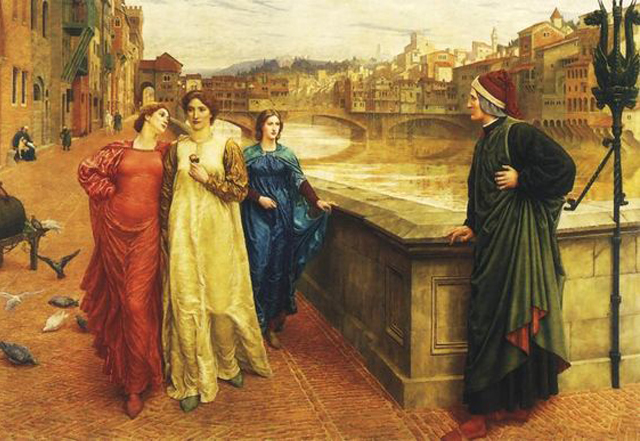
L’incontro sul Ponte Vecchio
The meeting at the Ponte Vecchio
Nonostante tutto, Dante non smise mai di amare Beatrice. Ogni giorno vagava per Firenze sperando di vederla o parlarle. Un giorno, mentre si trovava ai piedi del Ponte Vecchio, Beatrice passò con le sue amiche. Questa volta, però, si fermò e parlò con lui.
Despite everything, Dante never stopped loving Beatrice. Each day, he wandered through Florence, hoping to catch a glimpse of her or speak to her. One day, as he stood at the foot of the Ponte Vecchio, Beatrice passed by with her friends. This time, however, she stopped and spoke to him.
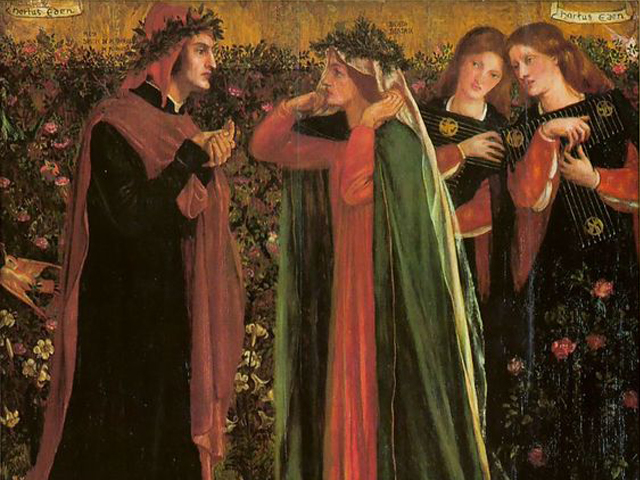
La nascita della Divina Commedia
The birth of the Divine Comedy
Si dice che Dante fosse così emozionato e felice per aver finalmente scambiato parole con la sua amata Beatrice che tornò a casa e quella notte sognò un sogno che gli avrebbe dato l’ispirazione per scrivere il più grande poema del mondo: La Divina Commedia!
It is said that Dante was so thrilled and happy to have finally exchanged words with his beloved Beatrice that he returned home and that night dreamed a dream that would inspire him to write the world’s greatest poem: The Divine Comedy!*
Dante: l’esiliato di Firenze
Dante: Florence’s exile
Dante visse a Firenze durante un periodo di complessi intrighi politici. A causa delle sue alleanze, fu costretto a lasciare la città natale, un altro grande amore della sua vita. Povero Dante! Fu esiliato dai suoi concittadini e vagò senza meta per l’Italia come un vago, fino ad arrivare a Verona, dove trascorse gli ultimi anni della sua vita.
Dante lived in Florence during a time of complex political intrigues. Because of his alliances, he was forced to leave his birthplace, another love of his life. Poor Dante! He was exiled by his fellow citizens and wandered aimlessly throughout Italy like a vagabond, eventually settling in Verona, where he spent his final years.
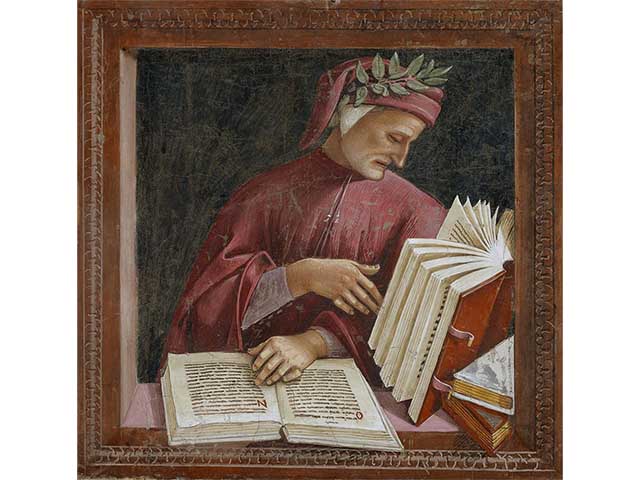
I monumenti di Dante: Firenze e Verona
Dante’s monuments: Florence and Verona
Ecco perché oggi troviamo una statua di Dante non solo a Firenze, davanti alla chiesa di Santa Croce, ma anche a Verona, in Piazza dei Signori.
That is why today we find a statue of Dante not only in Florence, in front of the Church of Santa Croce, but also in Verona, in Piazza dei Signori.
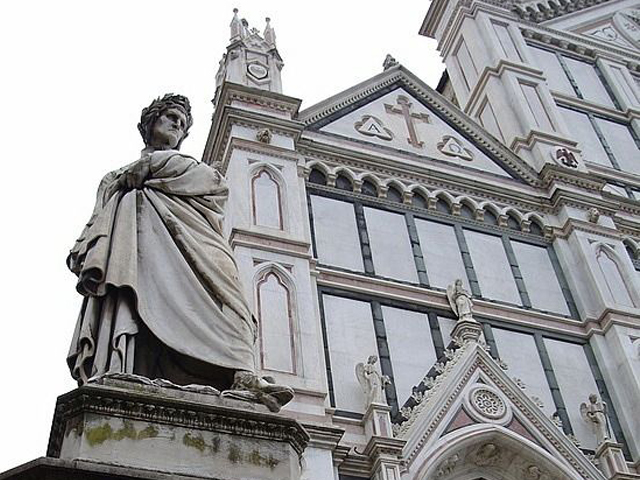
Seguire le orme di Dante è un modo straordinario per imparare l’italiano
Following in Dante’s footsteps is an extraordinary way to learn Italian
Leggere La Divina Commedia non solo arricchisce il vocabolario, ma offre anche un viaggio attraverso la storia, la cultura e i luoghi che Dante amava, come Firenze e Verona. Che tu stia esplorando i suoi versi o passeggiando per le strade che ha percorso, ricorda che ogni passo ti avvicina al cuore della lingua italiana, ispirato dall’“amor che move il sole e l’altre stelle.”
Reading The Divine Comedy not only expands your vocabulary but also takes you on a journey through the history, culture, and places Dante cherished, like Florence and Verona. Whether you’re exploring his verses or walking the streets he once knew, remember that each step brings you closer to the heart of the Italian language, inspired by the “love that moves the sun and the other stars.”
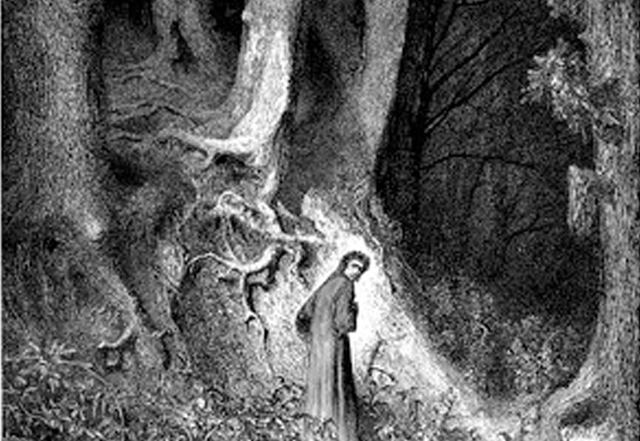
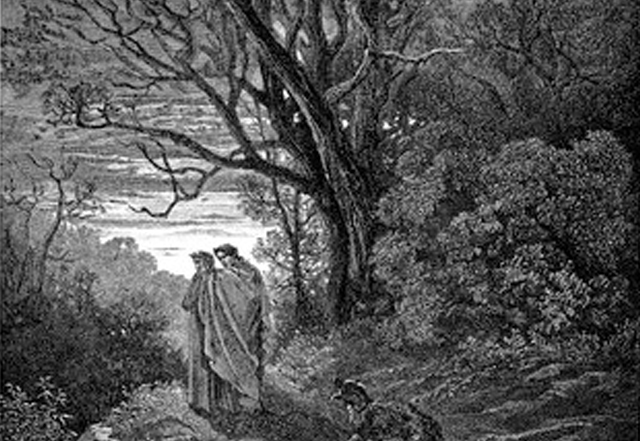
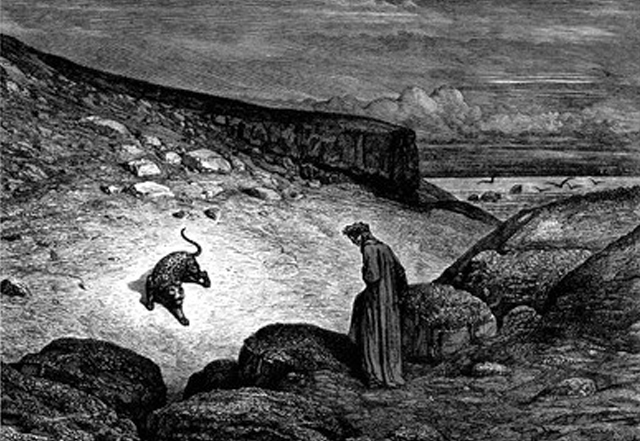
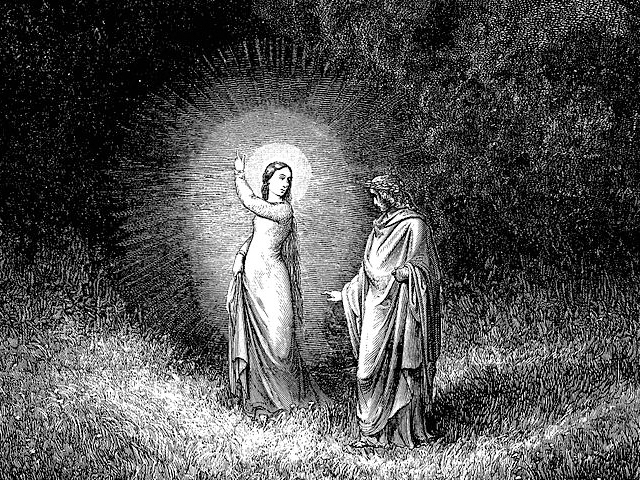

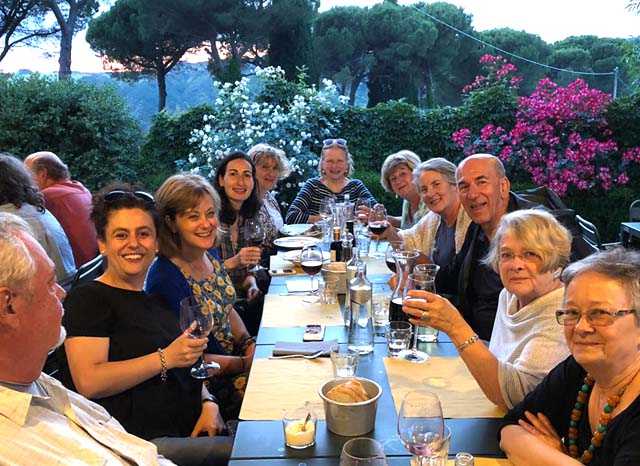
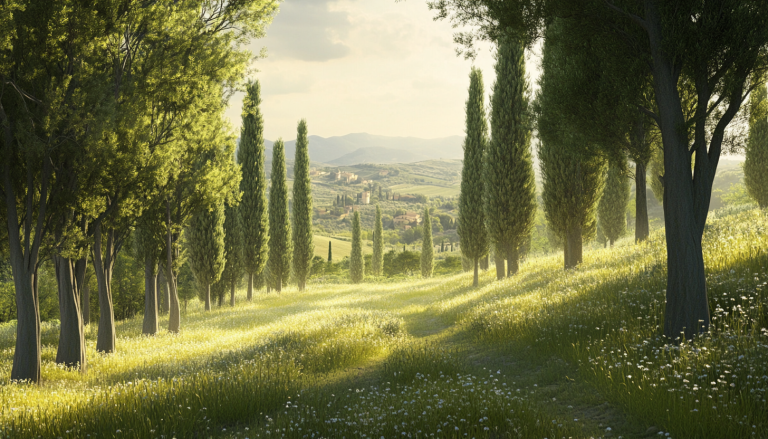
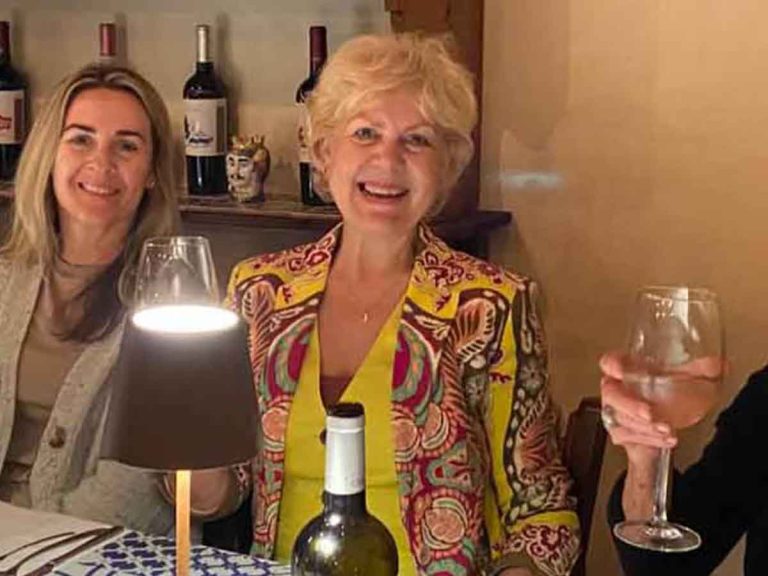
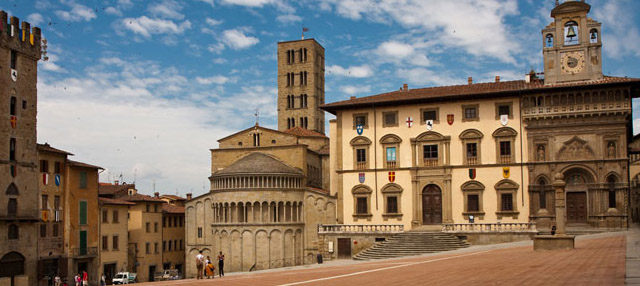
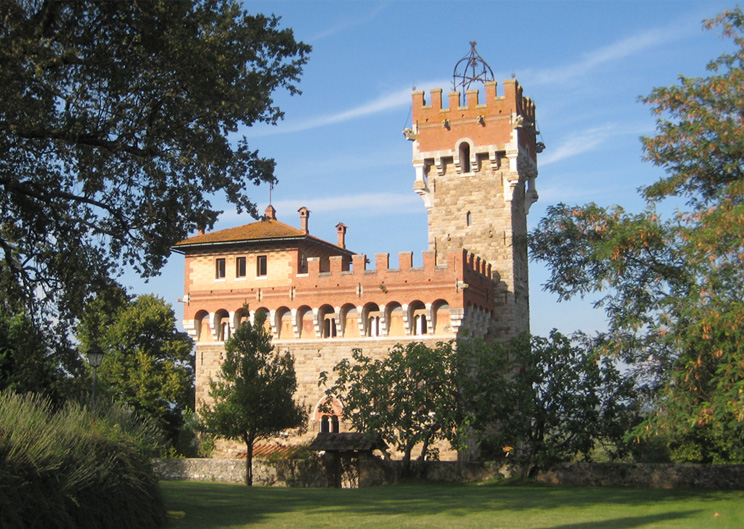





D’accordo era un bel cammino nella storia di Dante. Bel fatto. Inoltre la storia, mi fai ripensare e rivedere dei pronomi perché la bella frase: “intravvederla o parlarle”.
I have long studied the Italian language and somehow stumbled onto your website. Molto piacevole, mi piace molto. Un altra opportunita’ ad imparare.
Grazie
Giuseppe Schepis
Ciao Joe! Benvenuto! Bentrovato! Sono contenta di averti tra noi qui sul blog! Happy to know you and welcome to the blog and the Youtube Channel! A presto! Melissa